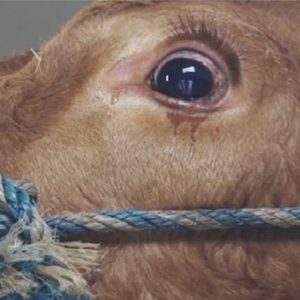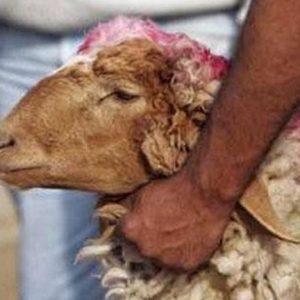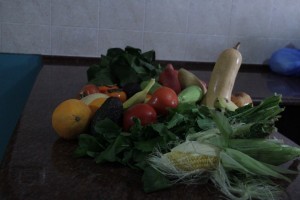The prevailing belief today – in most countries, regardless of religion or cultural background – is that killing and eating certain types of animals is allowed and natural. However, the ironic paradox is that our world has deteriorated and continues to do so significantly as a result of this belief. Therefore, we need to pause for reflection and confront ourselves with an important question: Where did we exactly stumble, and how can we now correct our course?
From an Islamic perspective, as human beings appointed as stewards on this Earth, should we protect this land, its resources, and its nature to make it suitable and safe for future generations?
It is crucial not to look at our religious texts in black and white only, stripping them of the temporal and geographical context in which they were revealed. By doing so, we can gain a real understanding of the prevailing context at that time. As we will later observe, the historical context that allowed the Quran to permit the consumption of animal meat reveals extremely harsh conditions where the use of animals for food, travel, clothing, and more was unavoidable.
First, let’s take a look at some of the domesticated animals mentioned in the Quran, such as camels and livestock. These were types of animals that existed in the Arabian desert at that time, and they have been present for around 9,000 years. Yes, the Quran mentions these animals as sources of food, clothing, transportation, and housing because that’s what was available to people at that time. The Quran did not introduce these practices as something new but presented the situation as it was. In her book “Arabia in the Age of the Jahiliyah,” author Nihal Shahin Utku states: “The Arabs were nomadic Bedouins who relied heavily on their animals for survival, and we see that they lived in a harsh desert environment with a miraculous animal like the camel, where they lived inside tents made of camel hair.” She goes on to detail the specific benefits of camels and why they were a perfect fit for the desert environment, as well as why they were highly suitable for the people of the Arabian Peninsula. Now, do you think that if the Prophet Muhammad (peace be upon him) were sent to the people of the Scandinavian countries, the Quran would have mentioned camels? The answer is, of course, no. The only reason the Quran mentions camels and livestock in the context of food, clothing, transportation, and housing is that they were an integral part of the complex Bedouin society. Of course, the Quran was addressing the people from the environment they came from.
At that time, food was scarce and difficult to obtain, and people lived in a very harsh desert environment that forced them to eat whatever was available (including lizards – some people in the Arabian Peninsula still consume the monitor lizard today) and use whatever means they had to secure their food, shelter, and clothing. For example, people in the past used animals for transportation in the absence of other means.
Let’s be realistic for a moment and ask ourselves these questions:
When was the last time you used animals for transportation? And when was the last time you used animal hair for building materials for a house, for example? In reality, we no longer use animals for these purposes today simply because we have found better alternatives. So why do we continue to consume them as food, while we have plenty of alternatives available?
When we consider the current state of the environment and the widespread poverty that kills millions of children (22,000 children die daily due to poverty, according to UNICEF, which is approximately 8 million children annually), consuming animals is the worst thing we can do. So, why do we still do it? Moreover, there is no moral reason today to kill animals for clothing, shelter, or transportation in the developed world. In the same logic and reasoning, there is no moral reason to kill them for food either, while it is possible for us to live our lives better without the need to kill animals.

Killing and consuming animals today is considered one of the worst practices of humanity for several compelling reasons, and it raises ethical, environmental, and health concerns. Here’s a brief overview of why this practice is problematic:
- Severe Environmental Damage:
- Environmental Pollution: The livestock industry is a major contributor to water and soil pollution due to the excessive use of fertilizers, pesticides, and waste from animal farming. It generates more greenhouse gas emissions than all of the world’s cars, trucks, and planes combined, contributing significantly to climate change.
- Water Scarcity: Animal agriculture consumes vast amounts of water. It takes thousands of liters of water to produce just one kilogram of meat, contributing to water scarcity in many regions.
- Land Use: Livestock farming requires vast amounts of land, leading to deforestation and habitat destruction. This disrupts ecosystems and leads to species extinction.
- Resource Depletion:
- Inefficient Resource Use: The production of meat is highly resource-intensive. It takes much more land, water, and energy to produce a pound of meat compared to a pound of plant-based foods. This inefficient use of resources is unsustainable, especially with a growing global population.
- Food Security: A significant portion of the world’s grain production is used to feed livestock instead of directly nourishing people, exacerbating global food security issues.
- Animal Welfare: The industrialization of animal farming has led to widespread cruelty and suffering for billions of animals each year. Many animals are raised in confined, inhumane conditions and subjected to painful procedures.
- Health Implications: Excessive meat consumption has been linked to various health issues, including heart disease, diabetes, and certain types of cancer. Plant-based diets have been associated with better health outcomes.
- Climate Change: The meat industry is a major contributor to climate change due to methane emissions from livestock and the energy-intensive nature of meat production. Reducing meat consumption can significantly lower an individual’s carbon footprint.
- Religious and Ethical Considerations: Many religious and ethical traditions emphasize compassion for animals and responsible stewardship of the Earth. Killing animals for food can be seen as inconsistent with these values.
- Inefficiency in Feeding the World: Using crops to feed animals for meat production, rather than directly feeding people, is an inefficient way to address global hunger. Redirecting these resources to plant-based diets could help alleviate food shortages.
In conclusion, the practice of killing and consuming animals today has far-reaching negative consequences for the environment, human health, and animal welfare. It’s essential to recognize these issues and consider more sustainable and ethical dietary choices for the well-being of the planet, future generations, and all living creatures.
Animals are not here to serve us.
Animals have been on this Earth for about 550 million years, a much longer time frame than the existence of humans on this planet, which doesn’t exceed 200,000 years. Is it logical, given this fact, to claim that animals were created solely for our benefit?
Animals, like humans, have specific roles on this planet, and each species of animals has its own ecosystem. It is arrogant for humans to claim that animals were created solely to serve them. It’s worth noting that while the concept of mutually beneficial cooperative relationships is prevalent in nature—where two or more animals benefit from working together—humans have often treated others, including each other, with domination, control, and suppression over the years. True benefit comes from studying and observing life rather than exploiting it. Wasn’t the study of birds, their flight, structure, and aerodynamics, an inspiration for inventing airplanes? Is it just a coincidence that airplanes today resemble birds with bodies, wings, and tails? Isn’t this form of “harnessing” much more beneficial than the mass bloodshed committed by humans every day? When wolves were closely monitored, farmers who failed to keep them away from their herds found immediate success by doing what the wolves did: howling, instead of trying to poison or shoot them, as some municipalities in Palestine have done to deal with stray dogs—a method that is brutal and ineffective.
Humans can assert their control but in a humane, ethical, and responsible way, as stewards of God on Earth. For example, when ants and termites were closely studied for their architectural brilliance, complex tunnel networks were discovered with integrated air conditioning systems to maintain proper airflow. There are many other examples in nature that captivate us and present new opportunities. Therefore, yes, God has placed everything here for us not to exploit as we did in the past but to learn from and become better beings, benefiting from and providing benefits to all life around us. For those who reflect on the teachings of the Quran, they may find that this perspective aligns with the spirit of Islam and its teachings, rather than Muslims being part of the destruction and moral decay in how we treat the Earth and its resources, as the world collectively does today.
Charity and sacrifice in Islam do not require bloodshed!
Sacrifice in Islam is a Sunnah (tradition), not an obligation or duty, and thus the theory of the obligatory nature of sacrifice upon financial ability is flawed. It should also be emphasized again that the Sunnah of animal sacrifice was associated with harsh environmental conditions where there were few alternatives for food. In light of this, we can ask briefly: wouldn’t it be better to use the money that would be spent on sacrifices for a more beneficial purpose for the poor?
In Palestine, for example, about 3 pieces of meat are distributed per family (equivalent to one kilogram). If we consider that this family might consist of 7 people and has no other materials to cook with besides this small amount of meat, and given that the price of one kilogram of meat is over $20, wouldn’t it be better for this family to receive the value of one kilogram of meat in cash, which they could use to buy food that might sustain them for at least three full meals?
Taking into account all that has been mentioned regarding the catastrophic consequences of using animals for food, its greater harm to the poor, who are supposed to be a significant part of the recipients of these sacrifices, and its harm to future generations, not to mention the brutal treatment of animals in meat, milk, and egg farms, can we justify continuing traditions that no longer have logical or ethical justification?
Unless our appetites and desires are more important than all of this, this is an issue that cannot be addressed by such ethical discourse.
Sources:
The Vegan Muslim Initiative
Al-Adab Al-Nabawi (The Prophetic Ethics) Website




